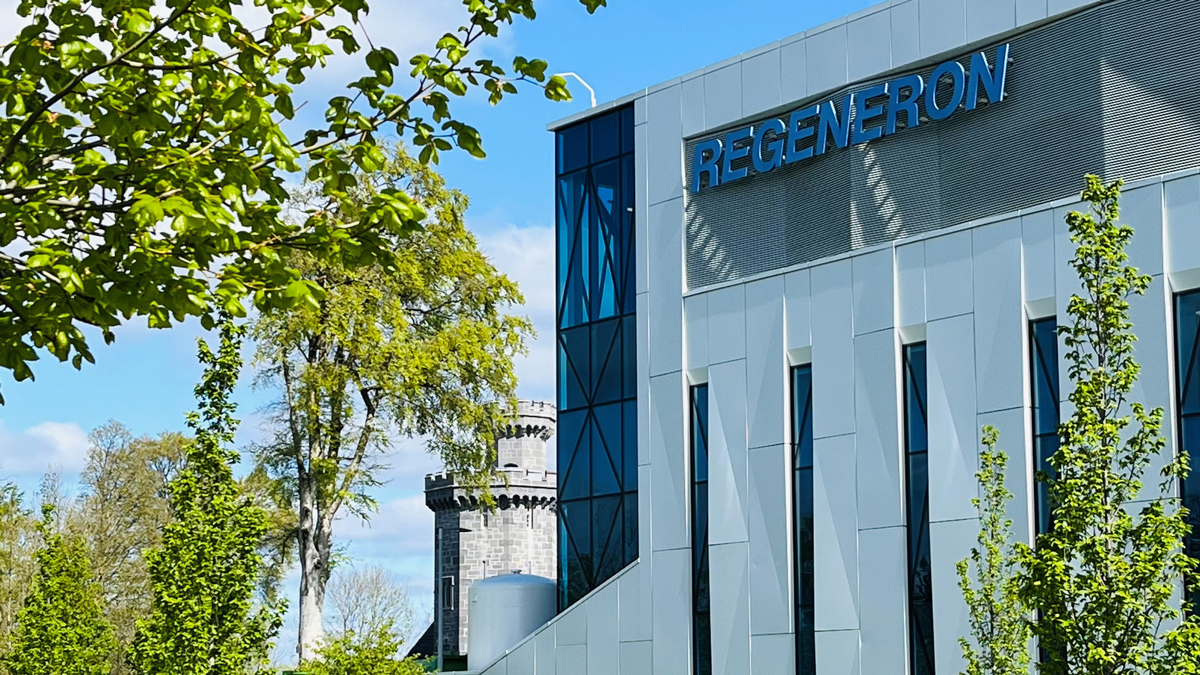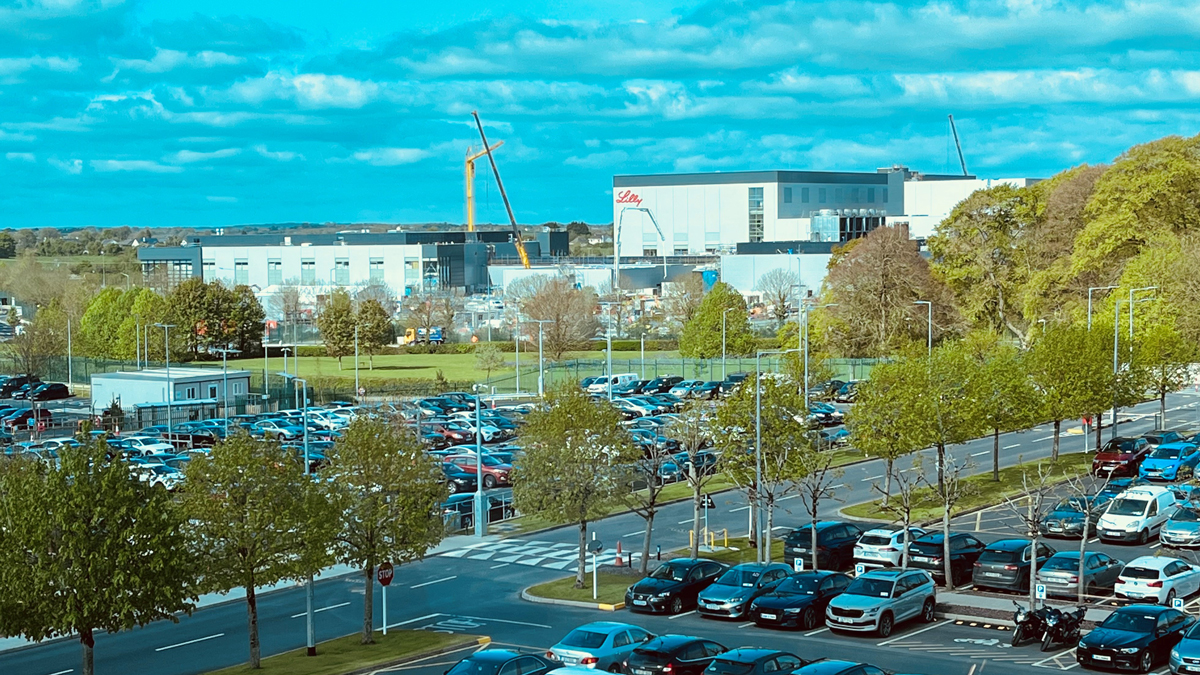Life sciences in Ireland: Nurturing talent, innovating excellence

Late last month, pharmaphorum was invited on an IDA Ireland-organised press tour of the life sciences industry in Ireland’s West, permitting an inside peek into the world-class life sciences innovation and manufacturing scene the country has to offer.
This is the first instalment of a multi-part coverage of that trip.
IDA Ireland is Ireland’s inward investment agency and it’s clear that life sciences investment in the Emerald Isle is booming. As pharmaphorum recently reported, a new white paper report from IDA – titled ‘Where next for MedTech – Key considerations for the factory of the future’ – noted that, although MedTech is facing a period of profound change, driven by technological disruptions like artificial intelligence (AI), the need to increase innovation and productivity, and mitigate climate change and global supply chain disruptions, Ireland is building on its position within Europe as a hub of MedTech research, and of manufacturing excellence.
Only last year, pharmaphorum was reporting on Ireland’s emergence as a biopharma hotspot. Biopharmaceutical presence has almost doubled in size over the last decade, with nearly 40,000 employees and more than €80 billion in annual exports (making it the world’s third-largest exporter of pharmaceutical goods, which make up 39% of the country’s annual exports). At present, there are more than 85 pharmaceutical companies operating out of Ireland. So it was that we were keen to research the Irish life sciences scene further, and gain insight into what’s coming next.
From gene therapy to IOPS
Flying into the quaint Shannon airport, due to a prior HealthTech panel commitment, this editor was unfortunately unable to arrive in time to attend the tour of MeiraGTx’s gene therapy manufacturing site just down the road in County Clare. Nonetheless, fellow journalists expressed how impressed they had been to learn how the site permits the ability to cut months, perhaps even years, off the manufacture time of products.
Opened in September 2022, clinical-stage company MeiraGTx’s 150,000 sq ft plant is the first in Ireland capable of commercial-scale gene therapy manufacturing. Equipped with end-to-end manufacturing capabilities, the site includes three facilities: clinical and commercial viral vector production; plasmid DNA manufacture (crucial for gene therapies); and biochemical quality control testing.
It goes without saying that cell and gene therapies are a ‘hot’ topic at the moment – keep an eye on pharmaphorum for upcoming reportage on Economist Impact’s recent 2nd Annual Cell and Gene Therapy Summit, held in Belgium – and MeiraGTx’s approach to gene therapy uses adeno-associated virus (AAV) vectors, for their safety profile and versatility, being less likely to provoke an immune response. Its platform enables the customisation of vector elements to design product candidates tailored to specific diseases.
Nonetheless, pharmaphorum was able to fully take part in the press tour after that, beginning with a visit to Regeneron’s Industrial Operations and Product Supply (IOPS) facility in Raheen, Limerick, launched in 2014.

Originally headquartered in New York, Regeneron acquired the former Dell computer facility, which had lain vacant since 2009, for its inaugural extra-US IOPS site. Now celebrating its 10th anniversary, the facility has surpassed 1,000 employees and invested over $1 billion in establishing it as the largest biologics manufacturing site in Ireland.
A science-driven approach and world-class manufacturing reputation
Meeting with Ivor Downey, VP of Regeneron Pharmaceuticals Inc, and Niall O'Leary, senior VP of industrial operations & product supply, and site head at Regeneron, together with Michael Nolan, executive director of manufacturing operations, the 1988-founded company currently has over 30 programmes in clinical development. It’s goal is ‘Bringing life transforming medicines to market’, and it might have just hit $100 billion in market capital, but – O’Leary insisted – they retain a small company mentality, with an onus on the science. Indeed, Regeneron’s founders are firmly science-based, MD-PhDs, Leonard Schleifer and George Yancopoulos.
That science-driven approach includes a broad research area that covers eye diseases, allergic and inflammatory diseases, cancer, cardiovascular and metabolic diseases, infectious diseases, and rare diseases. In addition, its innovations include the VelociSuite medicine discovery and development technologies, human genetics sequencing efforts, and rapid response technologies being used for global purposes.
Some of the biggest pharma companies have been investing in Ireland in recent years and, although Eli Lilly is a long-standing presence - having had a foot in Ireland for over 40 years, with more than 2,700 people employed in Cork, where it has a large manufacturing campus in Kinsale focused on chemical synthesis, biotechnology, and continuous manufacturing technologies - it recently announced its intention to double its planned investment in its manufacturing site under development in Limerick. That site is visible across the way from Regeneron; indeed, O’Leary stated Lilly wouldn’t have situated its facility there had Regeneron not been there.

In total, the capital expenditure for the 500,000 sq ft space will come to $1 billion and it will become its most technologically advanced facility for the production of biologic dugs, like monoclonal antibodies. The construction at the Raheen business park was set up by IDA Ireland and is expected to create more than 300 highly skilled jobs across areas including engineering, scientists, and operations when it comes online in 2026.
Why Ireland? Well, quite simply, there is a history of being a manufacturing hub for Europe, with the first manufacturing operation set up in 1959 by Leo Laboratories, which set the country on a path towards being a leader in active pharmaceutical ingredient (API) manufacturing. Nonetheless, returning to Regeneron, global development continues apace, and the company has opened commercial operations in Japan and facilities in India in the past two years, the importance of APAC presence ever increasing.
However, at the end of the day, what makes any of these sites function are the people, and the cost of living in the West of Ireland – as opposed to Cork or Dublin, where Pfizer and J&J are situated – is affordable. Again, that “small business, small family” mindset is palpable and it comes as no surprise to learn that Regeneron Ireland was recognised as one of the Best Workplaces in Ireland for four consecutive years.
Keep an eye out for subsequent instalments on the IDA Ireland life sciences press tour, including coverage of the Becton Dickinson (BD) Research Centre Ireland (RCI) and Digital Manufacturing Ireland (DMI) coming next.












